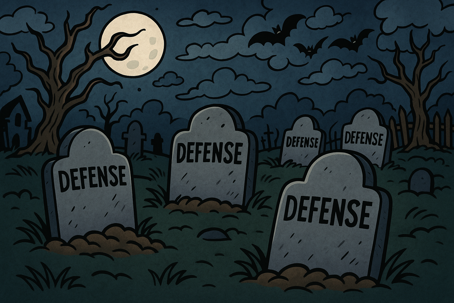Many people are arrested for DUI after police officers find them asleep in their vehicles or in a stopped vehicle. In some states, you can be charged with DUI simply for being in control of a vehicle, such as sitting in the driver’s seat while parked. However, South Carolina law requires more than just control of the vehicle—there must be actual evidence that the vehicle was in motion while the driver was impaired.
What Is the Graves Defense?
As a DUI defense lawyer, I have successfully helped clients challenge DUI charges when there was no direct observation of them driving. Despite this defense being well-established in South Carolina, many police officers and even some traffic court judges are unaware of its application. This makes it crucial for anyone facing DUI charges to work with an experienced attorney. Attorney James Snell has over 20 years experience in fighting South Carolina DUI charges, and is also the author of the book "South Carolina DUI Defense: The Law and Practice." He is also a member of the National College College for DUI Defense, and has completed instructor level training in the administration of field sobriety tests.
The Graves defense originates from the case State v. Graves, 237 S.E. 2d 584 (S.C. 1977). In this case, the defendant was found asleep in a running car with the transmission in gear. Despite these circumstances, the South Carolina Supreme Court ruled that there was insufficient evidence to justify a DUI conviction because there was no proof that the vehicle was actually moving while the driver was impaired. This case remains valid law in South Carolina today.
When Does the Graves Defense Apply?
The Graves defense is often relevant in situations like:
A parked car playing loud music leads residents to call the police. Officers find a man sitting in the driver’s seat, intoxicated, drinking beer. The car is running but not moving.
A police officer on patrol discovers a vehicle stopped in a parking lot with an unconscious driver inside. The driver is intoxicated, but there’s no evidence of movement.
A highway patrol officer finds a vehicle stopped on the side of the interstate. The driver is impaired, but the officer did not witness any driving.
It’s important to note that this defense does not apply to other potential charges such as public intoxication or open container violations.
When Does the Graves Defense Not Apply?
There are situations where the police do not directly witness driving, but the Graves defense may not be applicable:
Evidence of Movement: If a vehicle is found off-road or in a ditch, police may argue that the driver was impaired when they drove into that situation.
Witness Testimony: If a third party (such as another driver) reports erratic driving before the police arrive, their testimony could be used to establish the necessary element of movement.
Defendant Admissions: Statements made by the driver, such as admitting to driving while under the influence, can be used as evidence against them in court.
Even in these situations, the prosecution must still prove all elements of DUI beyond a reasonable doubt.
How Is the Graves Defense Used in Court?
To determine whether the Graves defense applies, a DUI defense attorney will:
Review pre-trial discovery materials, including police reports and witness statements.
File motions to obtain all available evidence, such as surveillance footage and officer body camera recordings.
Assess whether there is sufficient proof that the vehicle was in motion while the driver was impaired.
If there is insufficient evidence of movement, the attorney may petition the prosecutor for a case dismissal or charge reduction. If the case proceeds to trial, the attorney will argue the Graves defense in court.
Real Case Examples
Here are some examples of how the Graves defense has been used successfully:
Case 1: A truck was found stopped in the middle of the road. The driver was asleep at the wheel with the engine running. The DUI charge was dismissed before trial due to a lack of evidence proving movement.
Case 2: A driver was found holding a beer in a parked car. The police had no evidence of when or if the vehicle had been driven. During trial, the judge issued a directed verdict of not guilty.
Case 3: A driver was found asleep in a fast-food drive-thru. The police did not obtain statements from restaurant employees about whether the driver had moved the vehicle. The DUI charge was reduced to public intoxication.
(Disclaimer: Every case is unique, and past results do not guarantee similar outcomes in future cases.)
Why This Defense Matters
One of the reasons for the Graves defense is to encourage impaired drivers to stop and avoid further danger. If someone realizes they are too impaired to drive and decides to pull over and wait for a ride, they should not automatically be charged with DUI. The law, as written, allows an opportunity for drivers to make a responsible decision without fear of immediate arrest (although arrests still frequently occur, but at least we can use this defense to try to help fight for a dismissal).
Contact Us for a Free Case Evaluation
There are many potential defenses to a South Carolina DUI charge, including challenging whether the prosecution has evidence of movement while impaired. Every case is unique, and there are always legal options to explore.
We offer free consultations at our Lexington, South Carolina office and accept DUI cases in Lexington, Columbia, Newberry, Kershaw, and surrounding areas. Call us today at (803) 359-3301 for a case evaluation.

